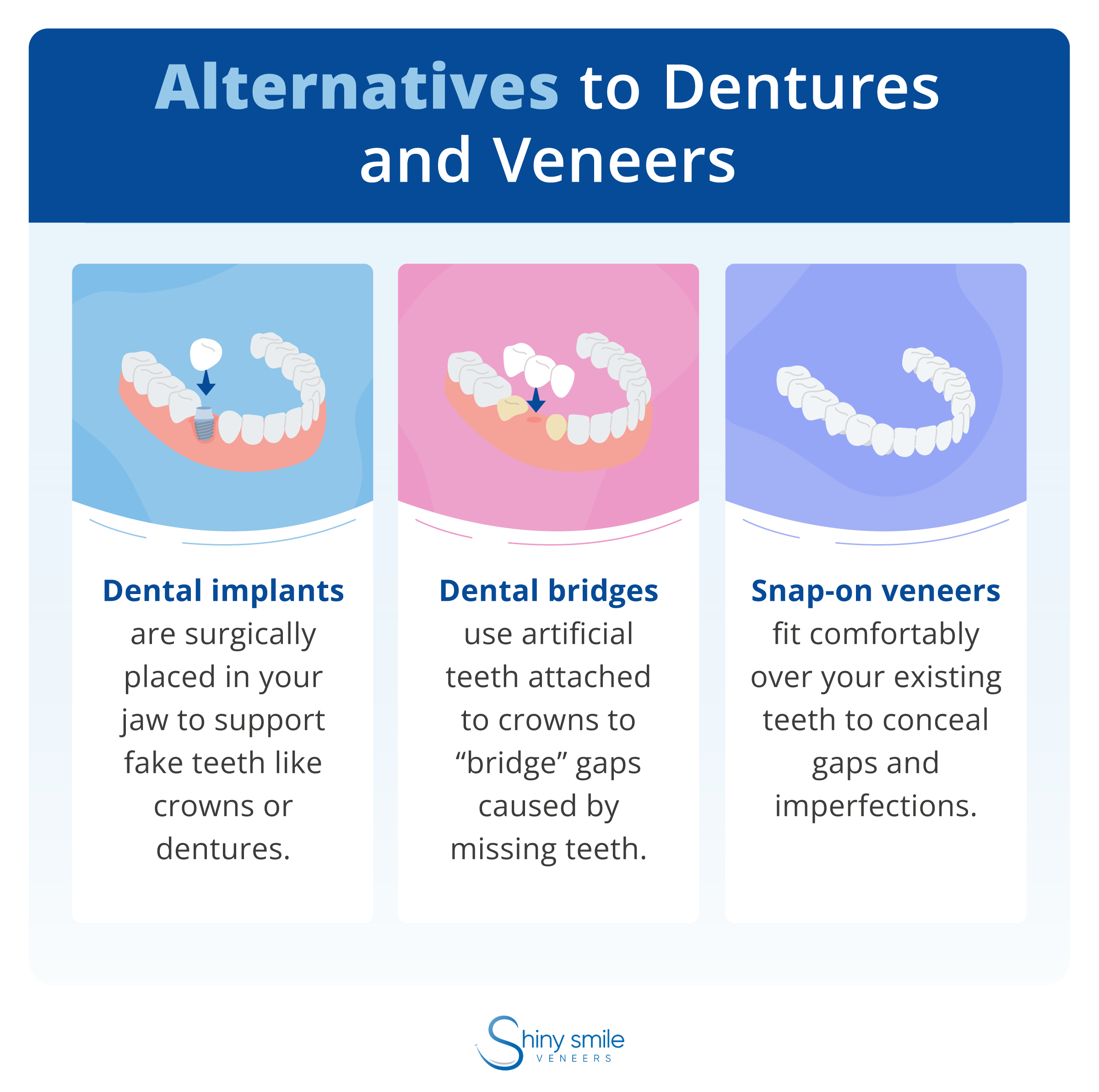Dentures Or Veneers

The world of dental restoration is vast and fascinating, offering a myriad of options for individuals seeking to improve the appearance and functionality of their teeth. Two popular choices in this realm are dentures and veneers, each designed to address different dental issues and offer unique benefits. Understanding the differences between these two options is crucial for making an informed decision that aligns with your oral health needs and aesthetic preferences.
At the heart of this discussion lies the issue of tooth loss and tooth imperfection. Tooth loss, whether due to decay, injury, or gum disease, can significantly impact an individual’s ability to chew, speak, and even their self-esteem. On the other hand, tooth imperfections, such as discoloration, misalignment, or chipping, can detract from the beauty of a smile. Both dentures and veneers are designed to address these issues, but they do so in fundamentally different ways.
Dentures: A Comprehensive Solution for Tooth Loss
Dentures are removable appliances that replace missing teeth and the surrounding tissue. They are tailored to fit comfortably in the mouth and can be designed to mimic the appearance of natural teeth and gums. There are two main types of dentures: complete and partial. Complete dentures are used when all the teeth are missing, while partial dentures are used when some natural teeth remain. The process of getting dentures involves several steps, including impressions of the mouth, try-in sessions to ensure proper fit and appearance, and finally, the placement of the dentures.
One of the significant advantages of dentures is their ability to restore chewing and speaking functions, significantly improving the quality of life for individuals with extensive tooth loss. Furthermore, dentures can be made to look very natural, returning the confidence that comes with a full, healthy smile. However, dentures may require some getting used to, and they might not feel as secure as natural teeth, especially during the initial adjustment period.
Veneers: Aesthetic Enhancement for Imperfect Teeth
Veneers, on the other hand, are thin layers of material (often porcelain or composite) placed over the front of teeth to improve their appearance. They are a popular choice for addressing issues like discoloration, minor misalignment, chipping, or gaps between teeth. The veneer process involves preparing the tooth by removing a small amount of enamel, taking impressions, and then bonding the veneer to the tooth.
Veneers offer a conservative approach to dental aesthetics, providing a natural look and feel that can dramatically enhance the beauty of a smile. They are particularly favored for their resistance to stains and their ability to reflect light in a way that mimics natural teeth. One of the key benefits of veneers is their durability, with proper care, they can last for many years. However, veneers are not suitable for everyone, especially those with significant tooth decay, gum disease, or severe misalignment, as these conditions would first need to be addressed.
Comparative Analysis: Dentures vs. Veneers
When considering dentures versus veneers, it’s essential to evaluate several factors, including the extent of tooth loss or imperfection, personal preference regarding removable versus fixed solutions, budget, and the desired outcome in terms of aesthetics and functionality.
- Purpose: The primary purpose of dentures is to replace missing teeth, restoring both function and aesthetics. Veneers, however, are specifically used to enhance the appearance of existing teeth.
- Design and Placement: Dentures are designed to be removable and can replace an entire set of teeth or just a few. Veneers are bonded to the front of individual teeth and are not removable by the patient.
- Candidate Selection: Dentures are suitable for individuals with significant tooth loss, while veneers are ideal for those with minor imperfections in their teeth.
- Durability and Maintenance: Both dentures and veneers can be long-lasting, but they have different maintenance needs. Dentures may need to be adjusted or remade over time due to changes in the jawbone and gum tissue, whereas veneers require regular dental hygiene and occasional polishing.
Expert Insights: Decision-Making Process
According to dental experts, the decision between dentures and veneers should be based on a comprehensive evaluation of the individual’s oral health, lifestyle, and personal preferences. It’s crucial to consult with a dentist who can assess the condition of your teeth and gums, discuss your aesthetic and functional goals, and recommend the most appropriate solution.
Technical Breakdown: Materials and Crafting
The materials used for both dentures and veneers have evolved significantly, offering stronger, more natural-looking options. Dentures can be made from acrylic, metal, or a combination of both, while veneers are often crafted from porcelain or composite materials. The choice of material depends on factors such as durability, affordability, and the desired aesthetic outcome.
Scenario-Based Examples
To better understand the application of dentures and veneers in real-life scenarios, consider the following examples:
- Case 1: An individual who has lost most of their teeth due to gum disease might find dentures to be the most suitable option for restoring their dental function and aesthetic appeal.
- Case 2: A person looking to enhance their smile by correcting minor issues like tooth discoloration or small gaps might opt for veneers as a more conservative and aesthetically pleasing solution.
Future Trends Projection
As technology continues to advance in the field of dentistry, we can expect even more sophisticated materials and techniques to emerge for both dentures and veneers. The integration of digital dentistry, 3D printing, and biosensitive materials could lead to more personalized, durable, and aesthetically pleasing dental restorations.
Conclusion
The choice between dentures and veneers is not a one-size-fits-all decision. It requires careful consideration of individual needs, preferences, and oral health status. By understanding the unique benefits and considerations of each option, individuals can make informed decisions that enhance their dental health and aesthetic satisfaction. Whether addressing tooth loss with dentures or perfecting one’s smile with veneers, the key to a successful outcome lies in a thorough evaluation and consultation with a dental professional.
FAQ Section
What is the average cost of dentures and veneers?
+The cost of dentures and veneers can vary widely based on the material used, the complexity of the case, and the location. On average, the cost of a set of complete dentures can range from $1,000 to $5,000, while veneers can cost between $500 to $2,500 per tooth.
How do I care for my dentures or veneers to ensure they last long?
+For dentures, regular cleaning with a denture cleaner, brushing the gums and tongue, and visiting the dentist for adjustments can help extend their lifespan. For veneers, maintaining good oral hygiene by brushing and flossing regularly, avoiding hard foods, and visiting the dentist for check-ups can help them last for many years.
Are dentures and veneers covered by dental insurance?
+Coverage for dentures and veneers can vary significantly depending on the insurance provider and the specific policy. In general, insurance is more likely to cover restorative procedures like dentures, especially if they are deemed medically necessary. Veneers, being more cosmetic, may not be covered or may be covered partially under certain policies.
By understanding the nuances of both dentures and veneers, and considering the insights provided here, individuals can navigate the decision-making process with confidence, ultimately selecting the dental restoration solution that best aligns with their needs and preferences.

